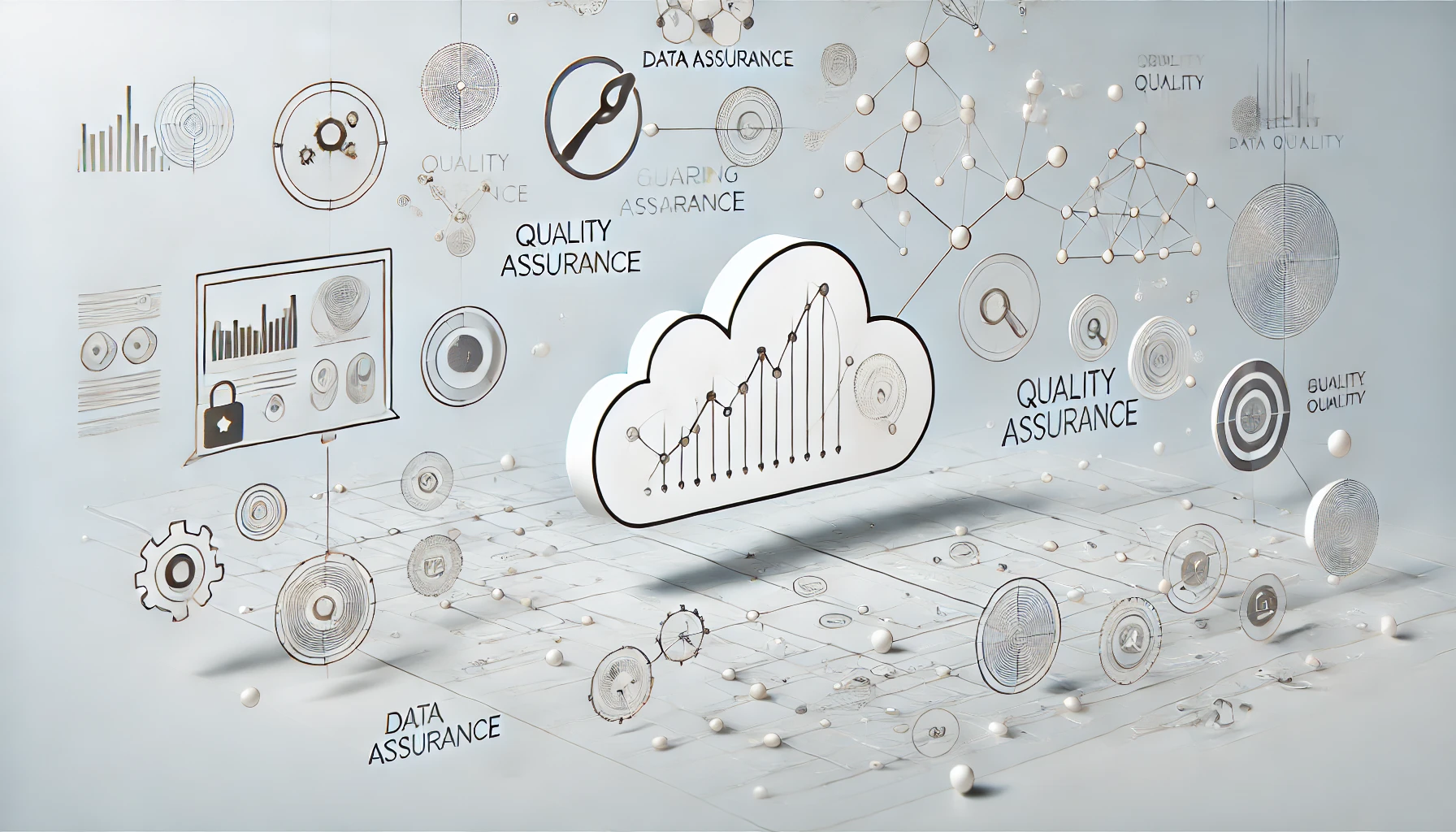When it comes to web data extraction, the question of legality often arises in various contexts. Understanding the intricate web of regulations and laws governing data extraction is crucial for ensuring compliance. While certain practices may seem straightforward, the nuances of data protection, privacy laws, and intellectual property rights can blur the lines. It’s essential to navigate this terrain carefully, considering not just the act of extraction but also the handling and use of the data obtained. So, where does the line between legality and infringement truly lie in the realm of web data extraction?
GDPR and Web Data Extraction
When considering GDPR and web data extraction, it is crucial to understand the legal implications surrounding the collection of personal information from online sources. GDPR compliance is paramount when extracting data from websites, especially when it involves personal data. Under the GDPR regulations, individuals have the right to know how their data is being collected and used, emphasizing the importance of data privacy.
To ensure GDPR compliance in web data extraction, it is essential to obtain explicit consent from individuals before gathering their personal information. Transparency regarding the purpose of data collection and how it will be processed is key. Additionally, data should be securely stored and processed in accordance with GDPR guidelines to protect individuals’ privacy rights.
CCPA Considerations
Considering the impact of the California Consumer Privacy Act (CCPA) on web data extraction practices is essential for businesses operating in or dealing with consumers in California. The CCPA places a strong emphasis on data security and user consent when it comes to the collection and use of personal information. Under the CCPA, businesses must ensure that any data extracted from websites complies with the strict data security requirements outlined in the legislation. This includes protecting the confidentiality and integrity of the data to prevent unauthorized access or disclosure.
Moreover, the CCPA requires businesses to obtain explicit consent from users before collecting their personal information through web data extraction. This means that businesses must inform users about the types of data being collected, how it will be used, and provide them with the option to opt-out if they do not wish to have their data extracted. Failure to comply with these requirements can result in significant penalties for businesses, making it crucial to align web data extraction practices with the provisions of the CCPA to avoid legal repercussions.
Copyright Laws Impact
When considering web data extraction, it is crucial to understand the impact of copyright laws on this practice. Copyright laws govern the use of original works, and scraping data from websites may infringe on these rights. Legal implications can arise if the extracted data is protected by copyright, highlighting the need for caution and legal advice in web data extraction endeavors.
Copyright and Data Extraction
Amidst the complexities of web data extraction, the intersection with copyright laws is a critical aspect to consider. When extracting data from websites, it’s essential to navigate the boundaries set by copyright regulations. Intellectual property rights protect original works, including online content, and unauthorized data extraction may infringe on these rights. However, there are instances where fair use provisions can apply. Fair use allows limited use of copyrighted material without permission for purposes such as research, news reporting, or education.
In the context of web scraping, the scope of fair use in relation to copyright is often debated. Factors such as the purpose of the extraction, the amount of data taken, and the potential market impact are considered in determining whether fair use applies. It’s crucial to be aware of the intellectual property rights held by website owners and to assess whether the data extraction complies with copyright laws. Understanding these nuances is vital to ensure that data extraction practices remain legally sound.
Legal Implications of Scraping
Navigating the legal landscape of web scraping involves a careful examination of the impact of copyright laws on this data extraction practice. When engaging in web scraping, it is crucial to consider the legal implications related to copyright. Adhering to ethical scraping practices is essential to ensure compliance with copyright laws. It is imperative to respect data privacy and use the extracted information responsibly to avoid potential legal issues.
Regulatory compliance is another critical aspect to consider when scraping data from websites. It is essential to be aware of any regulations or guidelines that govern data usage and ensure that your scraping activities align with these requirements. Failing to comply with regulatory standards can lead to legal consequences, including potential lawsuits or fines.
Therefore, when engaging in web scraping, it is vital to prioritize ethical practices, respect data privacy, and ensure regulatory compliance to mitigate any legal risks associated with this data extraction method.
Data Protection Regulations
When considering the legality of web data extraction, it is crucial to analyze the impact of data protection regulations. Privacy laws play a significant role in determining the permissibility of extracting data from websites. Additionally, understanding data ownership rights is essential in navigating the legal landscape of web data extraction.
Privacy Laws Impact
The impact of privacy laws on web data extraction, specifically data protection regulations, is a crucial aspect to consider in the digital landscape. Data security plays a significant role in privacy laws concerning web data extraction. Regulations often mandate that organizations implement measures to safeguard the data they collect, ensuring it is not misused or breached during extraction processes. User consent is another key element influenced by privacy laws. Many regulations require explicit user consent before extracting their data from websites. This consent ensures that users are aware of how their information will be used and provides them with a level of control over the extraction process.
Data Ownership Rights
Data protection regulations play a fundamental role in defining data ownership rights within the realm of web data extraction. When engaging in web data extraction, it is crucial to understand the nuances of data ownership to avoid potential ownership disputes. Data ownership rights refer to the legal rights a person or entity has over the data they collect, including data control and possession rights. These rights dictate who can access, use, and distribute the extracted data. Ownership disputes may arise if the ownership of the extracted data is unclear or if there are conflicting claims regarding possession rights.
Data rights are essential in determining the boundaries of permissible web data extraction activities. Understanding data ownership rights not only helps in complying with data protection regulations but also safeguards individuals and organizations from legal implications. By adhering to established data ownership principles, you can navigate the complex landscape of web data extraction while respecting the data rights of others.
Privacy and Web Scraping
Web scraping is a practice that has raised concerns regarding privacy implications. When extracting data from websites, privacy concerns and data security become significant issues. Websites often contain personal information that users may not intend to share beyond the site’s intended use. Scraping this data without consent could lead to privacy violations and breaches. Additionally, the process of web scraping can sometimes involve accessing restricted areas of a website, potentially compromising data security measures put in place by the site owner. This unauthorized access raises ethical and legal questions about the boundaries of data collection and usage. As a result, it is crucial for web scrapers to consider the privacy implications of their actions and ensure that they are not infringing on individuals’ rights to privacy. By being mindful of these concerns and respecting data security protocols, web scrapers can navigate the landscape of web data extraction more ethically and responsibly.
Ethical Guidelines for Extraction
When considering the ethical guidelines for data extraction, it is essential to prioritize transparency and accountability in your practices. Data ethics play a crucial role in ensuring that web scraping and extraction practices are conducted in a responsible and respectful manner. As an extractor of data from websites, it is important to respect the terms of service and the robots.txt file of the websites you are scraping from. Avoiding excessive requests that could overload servers and impact the performance of the website is also an ethical consideration.
Furthermore, it is imperative to handle the extracted data with care, ensuring that personal or sensitive information is protected and not misused. Always seek permission when extracting data from websites that may contain copyrighted material or proprietary information. Properly citing the sources of the extracted data and acknowledging the website owners is another ethical practice to uphold. By adhering to these ethical guidelines, you can engage in data extraction practices that are not only legal but also ethical and responsible.
Frequently Asked Questions
Can Web Scraping Be Considered a Form of Hacking?
When considering web scraping, labeling it as hacking can be misleading. It’s crucial to differentiate between ethical concerns and privacy issues. Utilizing data extraction responsibly is essential for maintaining trust and legal compliance.
What Are the Consequences of Scraping Data From Password-Protected Websites?
Scraping data from password-protected websites carries serious consequences. It compromises data privacy implications and raises ethical considerations. Unauthorized access to sensitive information can lead to legal repercussions, reputation damage, and potential breaches of trust.
Are There Restrictions on Scraping Data From Social Media Platforms?
When scraping data from social media platforms, you must consider privacy concerns and data protection regulations. Also, be mindful of potential copyright infringement issues and the boundaries of fair use when extracting information from these sites.
Can Web Scraping Lead to Intellectual Property Rights Violations?
When engaging in web scraping, be cautious of potential copyright infringement and data ownership issues. Understanding fair use regulations and respecting data privacy are crucial to avoid violations related to intellectual property rights.
Is It Legal to Scrape Data From Websites With Terms of Service Prohibiting It?
When scraping data from websites with terms prohibiting it, ethical implications arise. Privacy concerns may also be breached. You should consider the legal consequences and potential violations before engaging in such activities.



